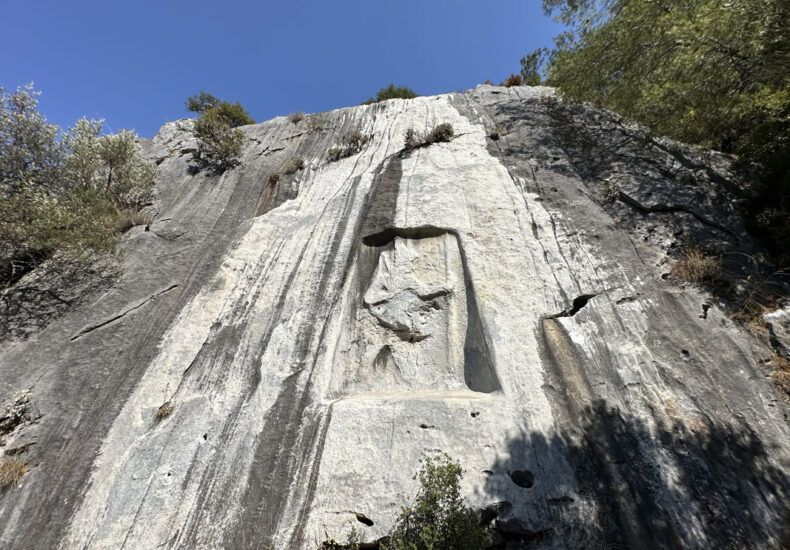
Forgotten Hittite Legacy in İzmir: Karabel Rock Monument Cries for Help
Hidden among the rugged hills of western Türkiye, the Karabel Rock Monument, a rare and invaluable Hittite relic, is slowly deteriorating due to neglect, vandalism, and lack of protection. Situated along the Kemalpaşa–Torbalı road in İzmir, this ancient site stands as one of the last surviving examples of Hittite rock art in Anatolia. A 3,000-Year-Old
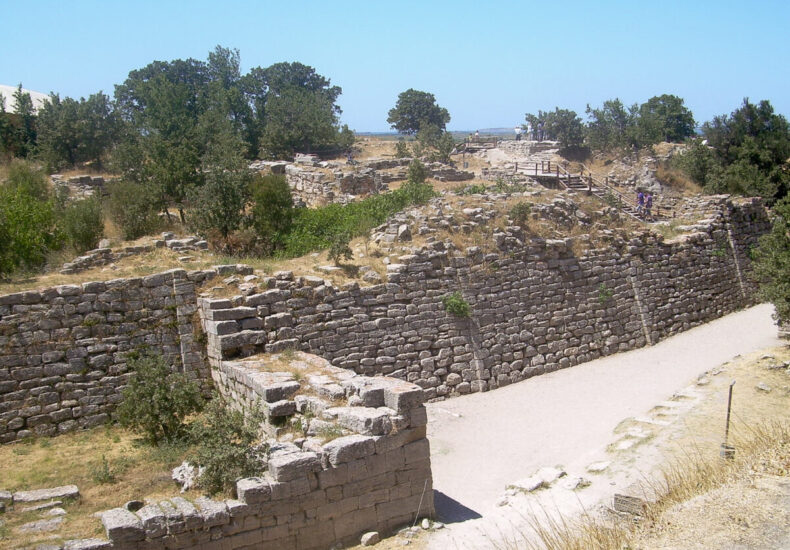
Troy’s Hidden Battlefield: Could the Fabled War Be More Than Just Myth?
Excavations in northwestern Türkiye may finally bridge the gap between legend and reality, as archaeologists uncover new clues pointing to a real conflict behind the ancient tale of the Trojan War. For centuries, the story of the Trojan War has lived on in epic poetry, dramatic films, and school textbooks—a sweeping saga of love, betrayal,
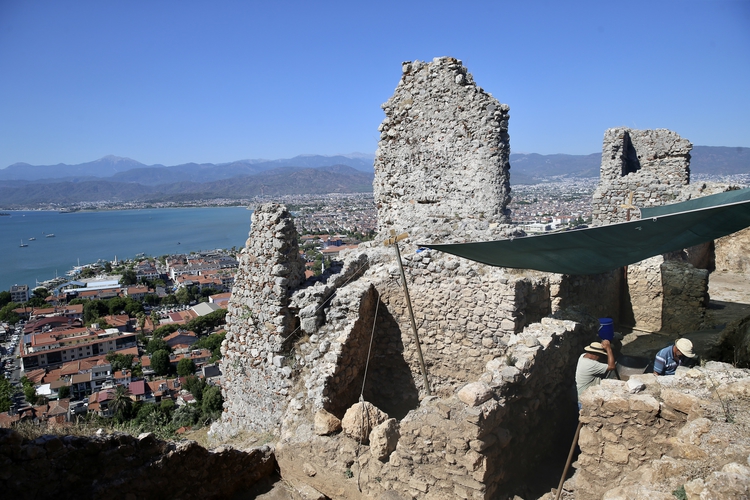
Byzantine-Era Chapel to Be Restored at Historic Fethiye Castle in Türkiye
An ancient chapel dating back to the Byzantine period has been uncovered during ongoing archaeological excavations at Fethiye Castle in Muğla, southwestern Türkiye. Restoration efforts are now underway to preserve the structure and open it to visitors. Excavations Continue on the Lower Slopes of the Castle The archaeological work is being carried out in the

Nearly Intact 1,500-Year-Old Mosaic Unearthed in Ancient City of Dara, Türkiye
Archaeologists working in the ancient city of Dara, located in Türkiye’s southeastern province of Mardin, have uncovered a remarkably well-preserved 1,500-year-old mosaic floor. The discovery, made in a former Roman residential area, is being hailed as one of the most significant finds in recent years. The excavation is part of the Turkish Ministry of Culture
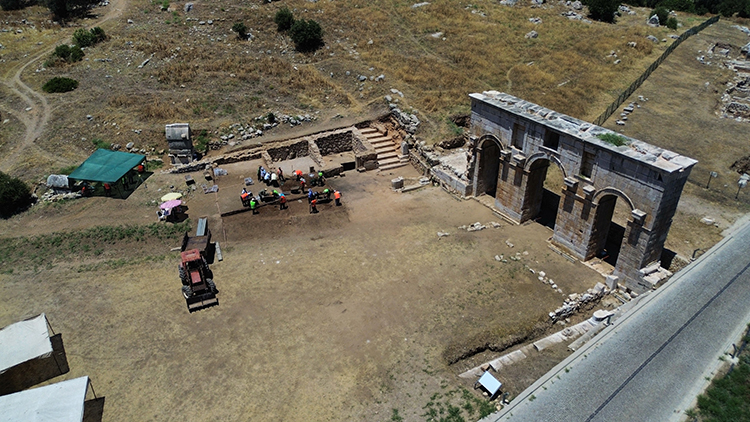
2,000-Year-Old Shops and Stoa Unearthed in Patara, the Capital of the Ancient Lycian League
Archaeologists have uncovered a remarkable new section of the ancient city of Patara, located in Türkiye’s Antalya province, revealing a series of 2,000-year-old shops and a stoa (colonnaded walkway) near the city’s monumental gate. Once the capital of the Lycian League, one of the earliest known democratic federations in history, Patara continues to captivate with

1,500-Year-Old Baptistery Unearthed in Ancient City of Tyana
Ongoing excavations in the ancient city of Tyana, located in Kemerhisar town of Bor district in Niğde, Türkiye, continue to reveal stunning insights into the region’s rich historical heritage. The latest discovery is a remarkably well-preserved baptistery believed to be over 1,500 years old. Part of Türkiye’s “Heritage for the Future” Initiative Archaeological work at
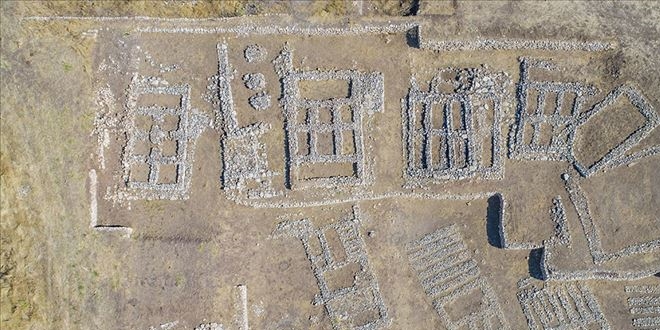
The World’s Oldest Known House Model, Dating Back 12,000 Years, Is on Display in Türkiye
A 12,000-year-old architectural model—believed to be the oldest house model ever discovered—has been unearthed at Çayönü Hill in Diyarbakır, Türkiye, and is now on public display at the Diyarbakır Museum. The Çayönü archaeological site, located in the Ergani district of southeastern Türkiye, continues to offer groundbreaking insights into the origins of settled life. Among the
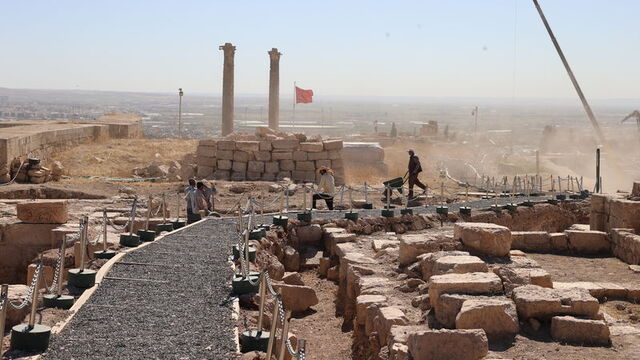
Ancient Tomb Discovered at Urfa Castle: Could It Belong to the Abgar Dynasty?
Archaeological excavations at the historic Urfa Castle in southeastern Türkiye have led to a remarkable discovery that may shed new light on the region’s ancient past. A rock-cut tomb dating back to Late Antiquity has been uncovered on Dambak Hill, just south of the iconic Balıklıgöl. Experts believe the tomb may be linked to the

2,200-Year-Old Statue Caught in Fishermen’s Net Now on Display at Marmaris Museum
A 2,200-year-old bronze statue of a woman, accidentally discovered by fishermen off the coast of Muğla’s Marmaris district in Türkiye, is now on display for the first time at the Marmaris Museum. The statue, which was found in 2020 in the Hisarönü Gulf by the crew of the fishing vessel Azimler, was caught in their
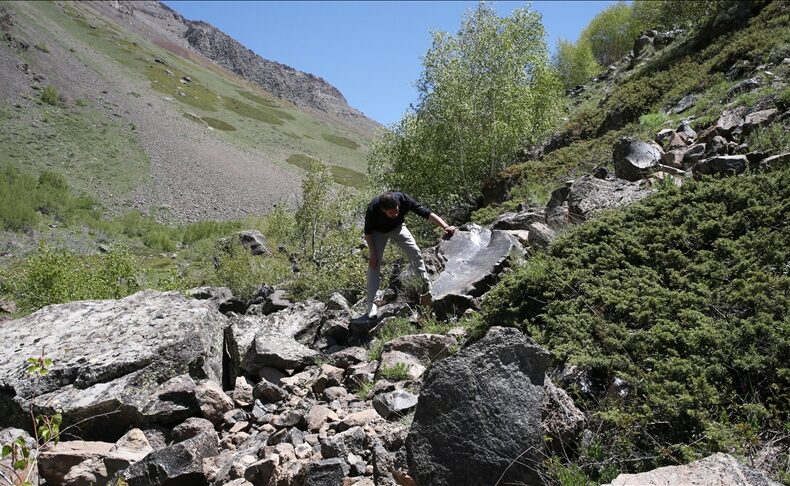
Tracing the Millennia-Long Journey of Obsidian from Bitlis to the Levant
A new archaeological project led by Bitlis Eren University (BEU) aims to uncover the ancient trade and cultural pathways that carried obsidian from the volcanic mountains of Bitlis, Türkiye, to the heart of the Middle East thousands of years ago. Obsidian, a naturally occurring volcanic glass, was a prized material in the Neolithic era, used
